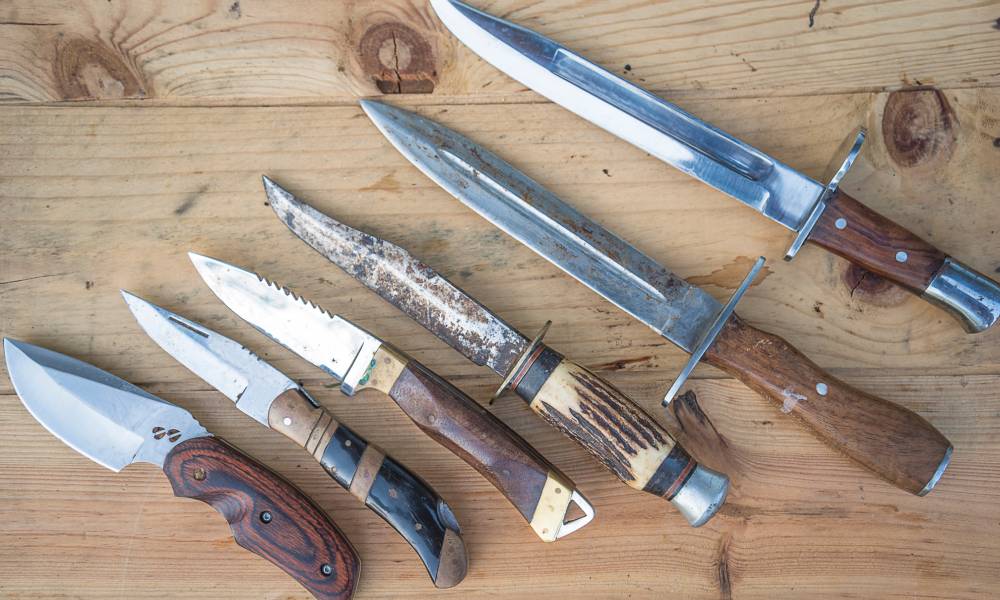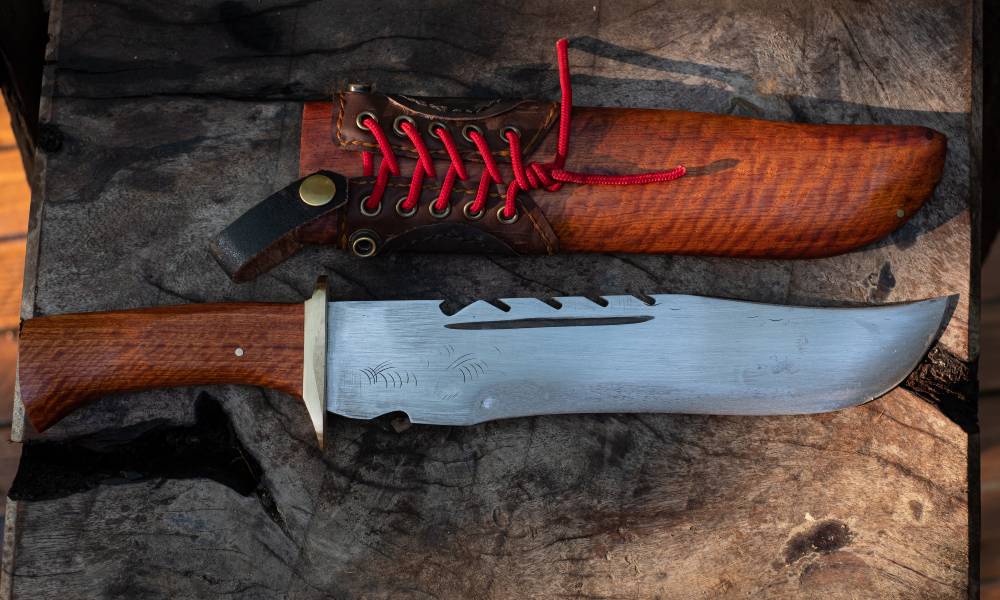How To Choose the Right Hunting Knife for Big & Small Game
May 23 2024 - 4:09
Hunting is an activity that demands precision, patience, and preparation. A central part of any hunter’s gear bag is the hunting knife, an indispensable tool for such a pastime. Due to its importance, this is an item hunters of any skill level must select with care. Given the diversity of game and the variety of tasks a hunting knife must perform, the question arises—is it possible to do it all with a single knife? If so, how would you choose the right hunting knife for big and small game? We’re here to cover that and more with this in-depth guide.
Is It Possible to Have Only One Knife for Hunting?
Let’s get the answer for this right out in the open. While it’s technically possible to use a single knife for various tasks involved in hunting, it’s not the ideal scenario. Hunting knives are designed with specific purposes in mind. While a sharp blade can theoretically handle most tasks, you’ll be much more likely to compromise the efficiency and quality of your work. A more nuanced approach involves using multiple knives for different types of tasks and sizes of game.
Why You Need More Than One Knife

The aftermath of a hunt involves several stages, from field dressing to processing the game, each requiring tools designed for the job. Skinning knives, for example, have a curved blade to help make incisions without damaging the meat. Boning knives, with their narrow and flexible blades, are perfect for removing bone from the meat while caping knives are designed for the precise work needed to prepare a trophy.
On top of that, you must consider the size of each of your blades. When hunting big game, such as deer or elk, a large, robust knife can handle cutting through tough tissue and bone in a way smaller knives can’t. For small game, a smaller, more precise knife is needed. While this demonstrates a baseline of the importance of having a toolkit that includes various types of knives, there’s a lot more to choosing the right hunting knives for big and small game, which we’ll cover in more detail for you.
Factors to Consider When Choosing a Hunting Knife
First of all, several factors play a crucial role in determining the choice of a hunting knife, which you’ll need to know about. These include the weight, blade type, edge retention, and handle material. The weight of the knife, in particular, is a critical consideration, as it needs to balance the requirement for a solid, durable blade against the ease of carrying it for extended periods. A knife that’s too heavy can be cumbersome and tiring to carry, while one that’s too light might not be robust enough for the demands of hunting, especially with larger game.
As for blade type, you can choose from one of two options. Most options are either fixed blades or folding knives. Having the ability to fold significantly impacts the tool’s overall durability and its suitability for specific tasks, such as skinning or gutting. Fixed blades are generally considered more durable and stable, making them ideal for heavy-duty tasks. However, you shouldn’t count folding knives out since they offer the convenience of being more compact and portable.
Edge retention is another crucial aspect, reflecting the blade’s ability to stay sharp through repeated usage. A knife that maintains its edge well will require less frequent sharpening, which is especially important in the field where sharpening tools might not be readily available. This characteristic ensures that the knife can be relied upon for consistent performance over time.
Lastly, the handle material contributes significantly to the knife’s grip, comfort, and overall control during use. Handle materials can vary widely, from synthetic options like rubber and plastic, which provide durability and water resistance, to natural materials such as wood and bone, which offer unique aesthetics and a traditional feel but may require more maintenance. Each material offers different benefits in terms of durability, grip, comfort, and aesthetics, making the choice of handle material a personal decision based on the hunter’s preferences and needs.
Selecting the Right Knife for Big Game Hunting

When choosing a knife for hunting big game, there are certain additional considerations you should keep in mind. Durability and versatility are two of the key factors to remember. A fixed-blade knife, known for its strength and reliability, is often preferred. The blade should be large enough to handle cutting deep through thick hide and joint tissues, with a length that allows for controlled strokes without being unwieldy.
Additionally, a drop point blade design is a popular choice for its strong tip and wide belly, which is ideal for making clean cuts through skin and muscle. Look for knives with high-quality steel that promises both sharpness and durability. The handle must offer a secure grip, even when wet, ensuring safety and precision in every use.
In general, for bigger game, the combination of a sturdy, versatile fixed-blade knife and a dedicated skinning knife might be the most effective approach, giving hunters the tools needed for both the initial field dressing and the detailed work of skinning. Still, there’s always room to expand your arsenal as needed.
Choosing the Perfect Knife for Small Game Hunting
On the other hand, small game hunting requires finesse and precision. The goal is to preserve as much of the hide and meat as possible, necessitating a knife that allows for meticulous care. A smaller fixed blade or a sturdy folding knife can be ideal, offering both precision and ease of carry.
Blade length should be shorter, providing more control for the delicate tasks associated with small game processing, like removing the hide and cleaning the animal. A clip-point blade offers a thin, sharp point perfect for detailed work without damaging the game’s delicate internal organs.
For handle material, considering lighter options provides ease of movement, which is necessary for the intricate tasks at hand. The knife should fit comfortably in the hand, allowing for detailed work without causing fatigue over time.
What If You Hunt Both?
Of course, it’s worth noting that plenty of people out there hunt both large and small game. If that’s the case, you’ll want to have quite a few knives to ensure you get the best results. Fortunately, if you hunt in a group, you can share as needed. However, if you don’t have enough variety, you’ll need to find a quality LT Wright knives dealer since this brand specializes in hunting knives.
Lucky for you, The Knife Connection is just the place you’re looking for. We have a large selection of LT Wright products on our site, along with knives from other trusted hunting brands, so be sure to take the time to find the ones that are right for your needs.
Read More:
LT Wright vs. Winkler Knives
How To Choose the Right Hunting Knife for Big & Small Game
Bradford Knives Reliability
What Kinds of Knives Do the Military Use?
